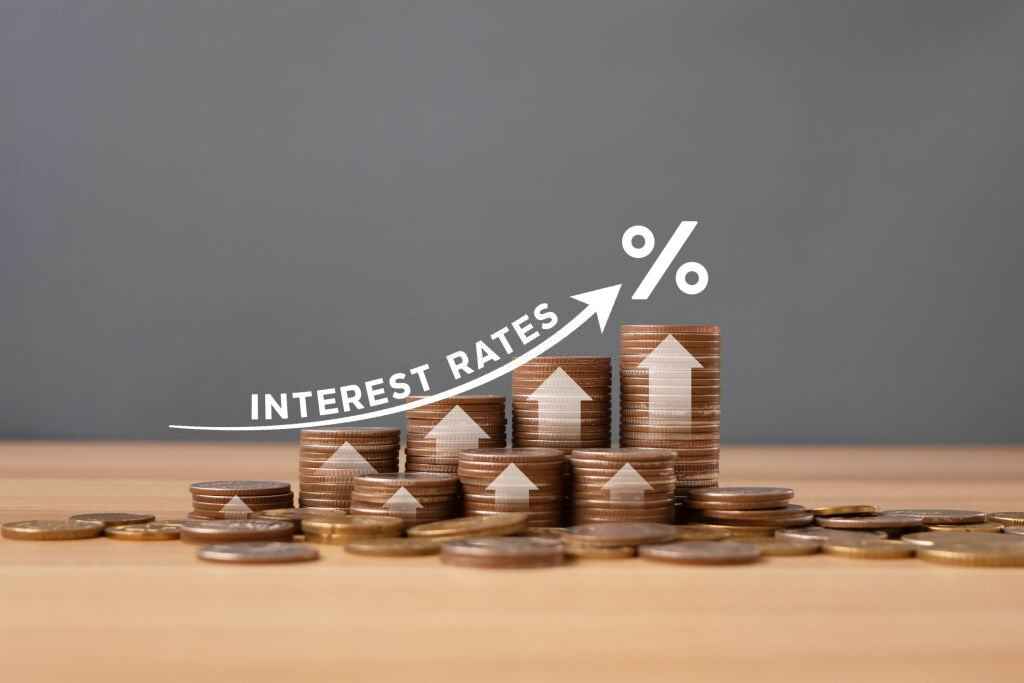Rising Interest Rates: Interest rates have been on the rise not just in the United States but in other economies as well. This has made the cost of debt for mortgages, credit cards, auto loans, and other loans skyrocket. For instance, the Annual Percentage Rate (APR) on credit cards has climbed from 16% to 18% on average over the year.
The market for auto loans has also seen an increase from 3.85% to around 5.75% on average for new car loans. Mortgage costs have also climbed from 3% to 6% over the year, thanks to interest rate hikes. On the other hand, investors and traders are also closely monitoring how interest rates impact stock markets both in the short and long term.
Rising Rates and The Federal Reserve Actions
The Federal Reserve is charged with the responsibility of maintaining price stability in the economy. To achieve maximum employment and stable prices, the Fed uses several techniques one of which is inflation targeting. Currently, the Fed targets 2% long-run inflation.
Whenever inflation goes beyond 2%, the Fed triggers several mechanisms to try and bring it back to the target level. This year, inflation has been running wild hitting 9.06% in June.
To try and tame this inflation, the Fed has been tightening the monetary policy by raising the funds rate. The funds rate is the interest rate at which banks borrow from one another overnight. Raising the funds’ rate causes a knock-on effect on other interest rate regimes across the board thus raising the cost of borrowing in the economy.
In the November 2022 Federal Open Market Committee (FOMC) meeting, the Fed raised the funds rate by 75 basis points bringing it to 3.75%-4%. This means interest rates on facilities such as auto loans, mortgages, and credit cards are also go bound to go up.
According to Fed watchers, the economic outlook for 2023 doesn’t seem very promising yet. However, there is optimism that the Fed will begin slowing the pace of its hikes starting mid-next year.
Interest Rates and the Stock Market
Rising interest rates impact the financial markets in different ways. Two of the major pathways are consumer demand and business profitability.
Consumer Demand (Rising Interest Rates)
Rising interest rates affect the cost of borrowing. Since consumers depend on credit for consumption, when rates go up, consumption levels decline. In the US, private consumption accounts for over 68% of its GDP. Therefore, reduced consumption dampens the economy and causes businesses to struggle. This also affects share prices negatively.
Cost of Production
As interest rates rise and the cost of borrowing skyrockets, firms incur higher financing costs on their existing facilities. Also, future production costs rise, and profitability estimates fall. This causes share prices to drop.
How To Survive the Stock Market as An Investor
In the face of rising rates and dwindling stock market security values, investors must revise their strategies to minimize losses and stabilize their gains. Here are a few tips to navigate market uncertainties.
Consumer Staples
Defensive stocks perform best when the economy is heading toward a recession. People still need energy, housing, and food to survive hence these stocks perform better even when rates are rising.
Health Care Securities
Much like food, energy, and housing, health care is a basic need that consumers cannot do without. Investing in healthcare stocks through mutual funds and ETFs is a smart move for any investor looking for recession-proof investment hacks.
Invest In Bonds
Fixed-income securities including bonds and treasury notes often register better returns when rates are rising. Bond prices are inversely related to interest rates. As rates rise, bond prices fall, thereby enabling you to pick up discounted securities with high yields.
Diversify Your Investments
Portfolio rebalancing is a must for investors in uncertain environments. If your portfolio has a lot of growth stocks, it’s time to invest in some value stocks, non-cyclical securities, and even index funds. The correlation among the different asset classes will protect your returns against the ravaging effects of increasing inflation and rising interest rates.
Rising Interest Rates Conclusion
Interest rates have been rising as the Federal Reserve continues its fight against runaway inflation. How long that fight will last, no one can tell with precision. However, as an investor, you can take certain actions to prove your portfolio against adverse price movements.

